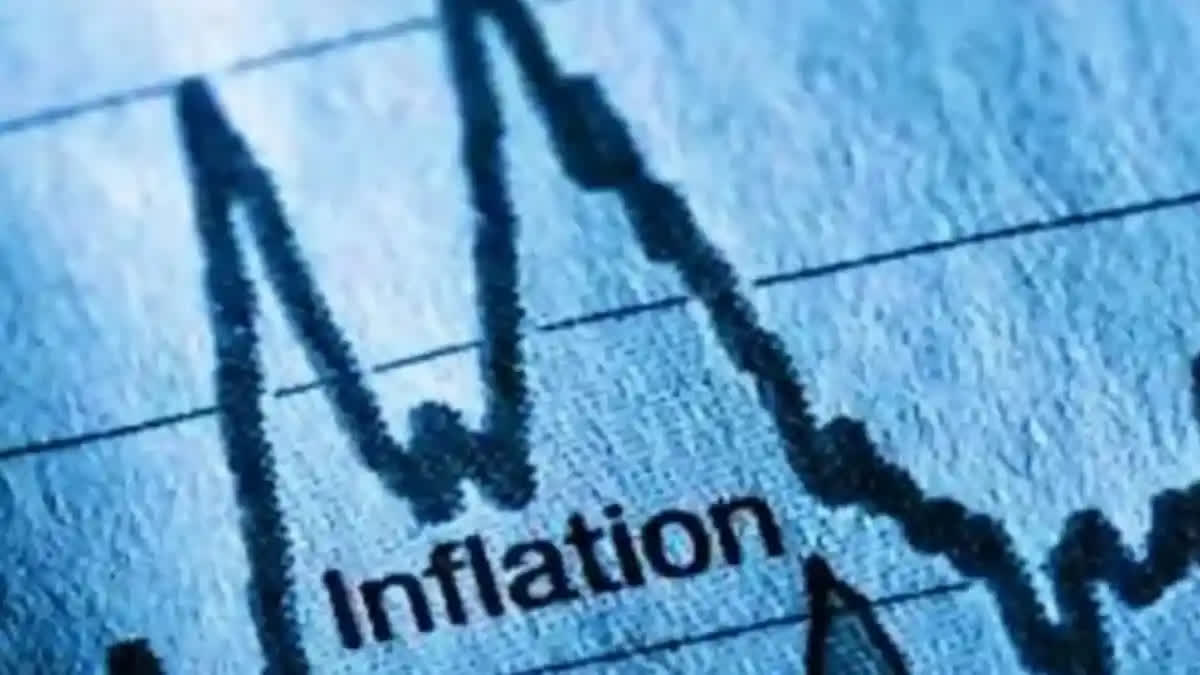New Delhi: The retail inflation in March eased further and declined to a 5-month low at 4.85 per cent, according to the government data released on Friday.
The inflation in the food basket also decreased marginally to 8.52 per cent in March from 8.66 per cent in the preceding month. The Centre released data of 22 states out of which nine states are at below national average inflation while the rest 13 are above it, at the inflation range of from 4.94 to 7.05 per cent.
Retail inflation in March eased to below 5 per cent level, which remained within the Reserve Bank of India's comfort zone of 6 per cent for the seventh month in succession.
Consumer Price Index (CPI) was at 4.85 per cent in March 2024 compared to the February number of 5.09 per cent and 5.66 per cent in March 2023. According to the data released by the National Statistical Office (NSO), the inflation in the food basket Consumer Food Price Index (CFPI) also declined to 8.52 per cent in March from February's 8.66 per cent.
Besides this data showed that rural inflation is picking up as compared to urban inflation. In March 2024 rural inflation was at 5.45 per cent as compared to 5.34 per cent in February 2024 but it was still low as compared to 5.51 per cent in March 2023. Urban inflation in March 2024 was at 4.14 per cent as compared to 4.78 per cent in February and 5.89 per cent in March 2023.
If we talk about month-on-month data, inflation eased by -11.72 per cent in the case of oils and fats and -3.24 per cent in the fuel and light category. The rest of the items of different categories were still in the positive territory.
Inflation of vegetables in March was up by 28.34 per cent, Pulses and products by 17.71 per cent, Spices by 11.40 per cent, eggs by 10.33 per cent and inflation of cereals and products was up by 8.37 per cent.
As per the data, the highest inflation was in Odisha at 7.05 per cent during March. Odisha was on top in February as well. And lowest inflation was in Delhi at 2.42 per cent like last month. The Reserve Bank of India has been tasked by the Centre to ensure retail inflation remains at 4 per cent with a margin of 2 per cent up and down.
Rajani Sinha, Chief Economist, CareEdge told ETV Bharat that CPI inflation, broadly in line with the expectations, has moderated to 4.9 per cent in March from 5.1 per cent in February.
"Core inflation remained subdued and moderated marginally, consistently staying below the 4 per cent threshold for the fourth consecutive month. Although there has been a broad-based moderation in the overall CPI basket, food inflation persists at elevated levels despite marginal deceleration. High food inflation is led by a double-digit growth in vegetables, pulses, eggs, and spices," said Sinha.
She also added that the sustained inflationary trend in some non-perishable food categories, such as pulses and spices, raises concerns about the potential broadening of price pressures due to their inherent stickiness.
"However, it's important to note that supply-side interventions in the form of such as the Open Market Sale Scheme (OMSS) and export restrictions by the government have played a pivotal role in easing food inflation," said Sinha.
According to Sinha, the outlook of food inflation has also improved with increased overall acreage in rabi sowing compared to the previous year and expectations of a normal monsoon with a waning El Nino condition. The arrival of the rabi harvest in the market is expected to contribute to the cooling of food inflation.
"Looking ahead, a favourable base effect is expected to persist until July 2024, helping absorb potential upward risks to price pressures to a certain extent," she quipped.



